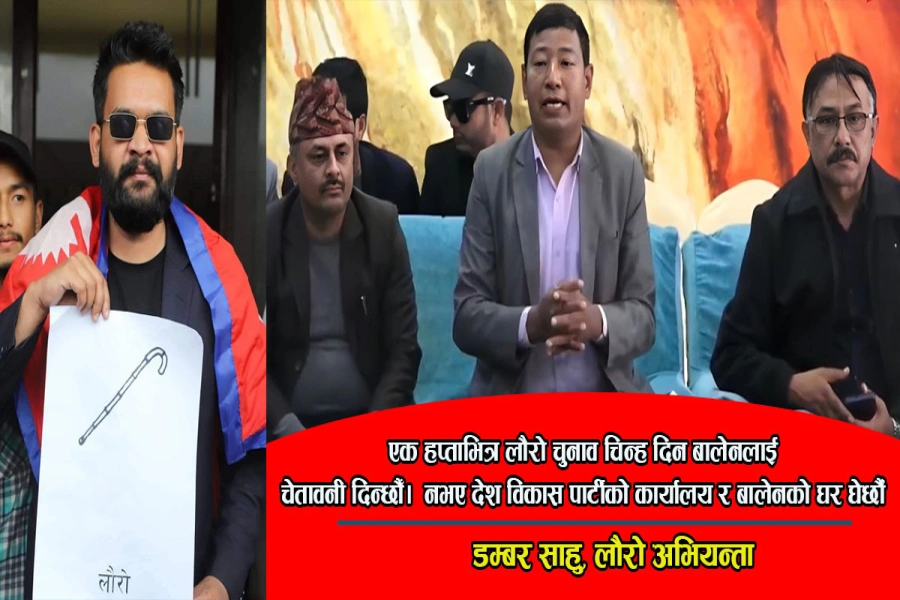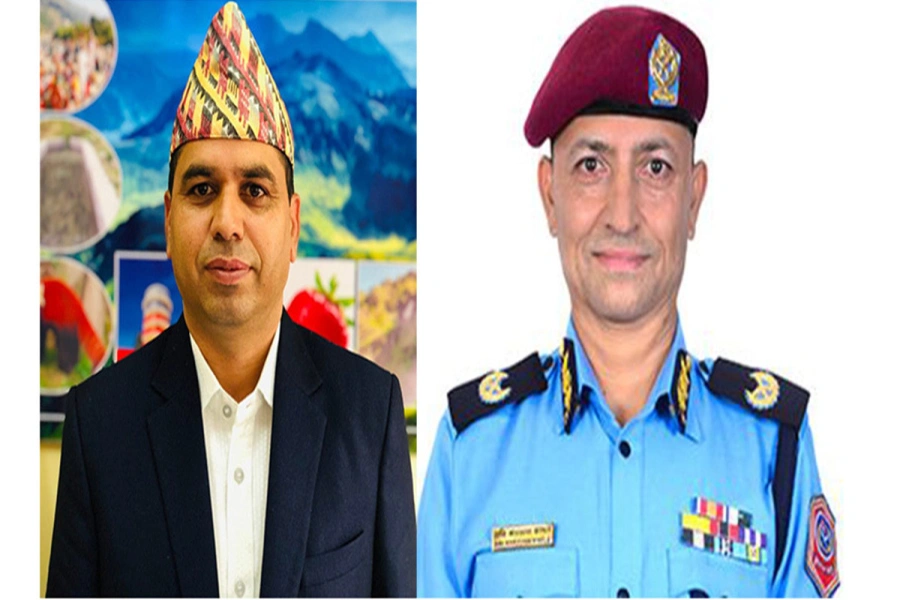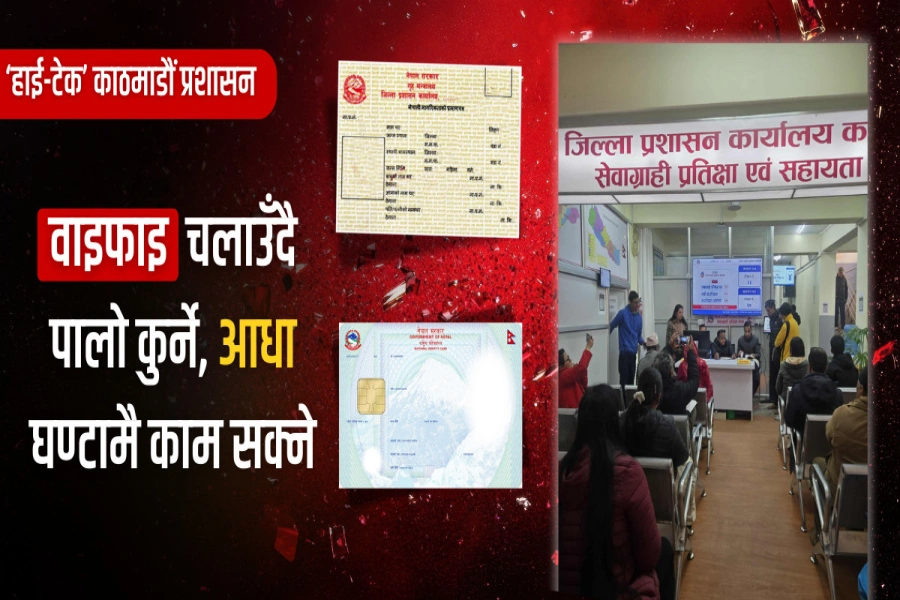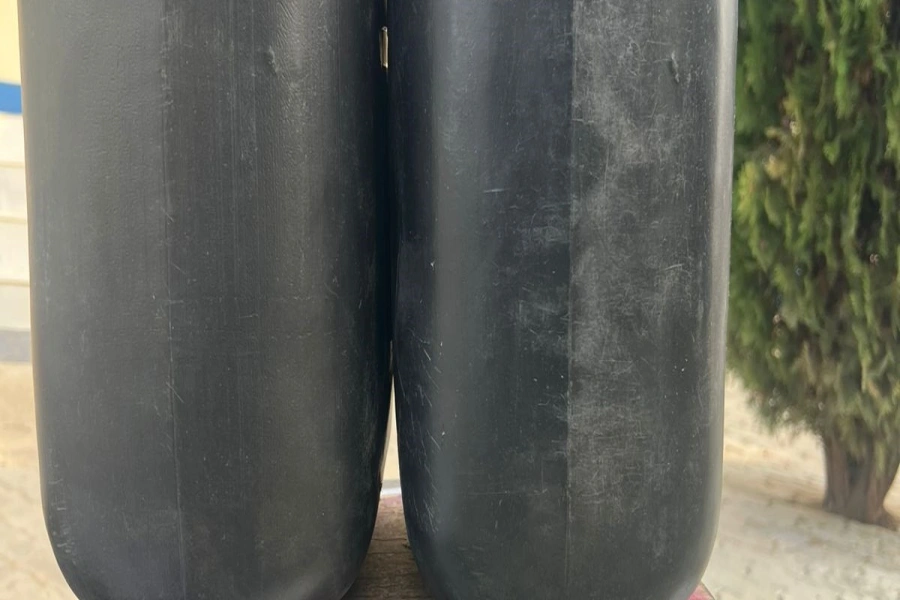Unreported Lives
Born with primordial dwarfism, life has never been easy for Gita Bhusal. From being scorned back in her village and called a burden to her family to being gawked at on a daily basis, she is determined to fight the odds to be able to live a life of dignity so that she isn’t limited or defined by her disability. She has passed her SEE and as she runs a stall selling handicrafts on the footpaths leading to New Road she dreams of a better future.
Gita Bhusal wishes to walk among the crowd, to blend in with the hundreds of people off to their regular lives and jobs. She holds onto this dream everyday as she sits with her wares on the street leading to New Road in Kathmandu. With handmade key rings, purses, coasters, and flowers made from fabric, she runs her stall from 11 in the morning to five in the evening. She sells the little merchandise to tens of people that stop by and view her with curiosity. But she has made peace with the stares she draws to herself. She says you get used to it after 24 years of being gawked at.
Gita was born with primordial dwarfism. Even today, she is barely three feet tall and her short legs are curved inward. She has speech impediments. Commuting is a constant challenge and one that has limited her greatly since birth. Born to a family of limited financial means in Syangja in Gandaki Province, Gita led a difficult childhood. Her parents and three brothers were always of great support when she was growing up. They, in no way, were mean to her or looked down upon her. Her neighbors, on the other hand, weren’t as nice. They would talk among themselves about how Gita’s birth was a burdened destiny and let their opinions be known to all, including her. As a child, Gita worried about her present as much as she did about her future.
For the first 11 years of her life she lived at home, never having enrolled at a school. “People didn’t believe I had a sound mind because I had physical limitations. So I didn’t attend school for the first decade of my life,” she says. But she was never one for sitting down and counting minutes. It was during these days that she developed a passionate love for dancing. Her parents and brothers were her first audience and they would applaud her performances.
Minister Sharma to fight any hurdle in no load-shedding campaig...

Even today, Gita loves dancing and aspires to be a dancer in the future. “When I dance I feel no burden. Nothing weighs me down. I feel free,” she says. She frequently dances to Bollywood songs because she enjoys the upbeat tunes and loves every moment of it. “I don’t take such moments for granted,” she says.
When she was 11 years old, one of her family’s acquaintances advised Gita’s parents to send her to Kathmandu for a chance at a better life. Gita had no education but had always expressed her desire to live an independent life and so her parents had to comply. It was so that Gita came to Khagendra Navajeevan Kendra and attended their secondary school. Here she spent the next 12 years and cleared her SEE in 2017.
At the age of 24, this year, Gita has passed her SEE. And she doesn’t plan on discontinuing her studies. She’s adamant on attending high school and completing her studies until the 12th standard. “I have learnt in the last decade of my schooling that education is the only guaranteed means through which lives can be improved. I don’t want to be considered a liability or be dependent on anyone. I want to earn my own keep and only education can make that possible for me,” she explains.
However, her desire is only a wish right now. Because Khagendra Navajeevan Kendra has facilities for just until class 10, Gita and more like her have no choice but to seek other alternatives. For her though, shuttling from her residence in Tarakeshwar to a college is the greatest cause of concern. She needs assistance for longer travels as she needs to move around in a wheelchair and public vehicles are highly unfavorable for that. To add to the troubles, she has no means of paying her tuition fees and is currently on the lookout for sponsors.
Upon her graduation from Khagendra Navajeevan Kendra, Gita was uncertain as to where life might lead her. It was during this phase that Apang Sewa Kendra contacted her and gave her refuge. Run by Chandra Bahadur Khatri, who is differently-abled himself, the organization gives shelter and provides meals to people like Gita and trains them in handicraft making so that they may lead good lives.
Today 22 other people live and work there. They wake up early in the morning and set on to making the wares that Gita later sells out on the streets. On average, they sell 2000 to 3000 rupees worth of products. The work is hard. Some of the crafters don’t have limbs while some have poor motor skills that make the meticulous work a very difficult feat. But with time they have improved and they work diligently because that is how they support themselves. They don’t have another means of doing so.
But this isn’t a source of steady income because they run out of their wares pretty quickly. This, however, is not due to popularity of their products but for their limitations that don’t allow them to manufacture items in bulk. Also the Kathmandu Municipality has strict rules for the operators of street side stalls and Gita and her companions aren’t granted any leniency. On the days they set up their stalls, a social worker helps them onto a public transport and guides them to their designated spot only to arrive before sunset to take them back to their dwelling.
Gita loves her time at her stall. Here she sees people milling about their lives, lives that she can only envision. Occasionally, people stop to converse with her, purchase a bulk of her products and show appreciation for her work. “23 people make these together but I made most of them,” she likes to remind people. Often she is overwhelmed by the kindness of strangers and wonders how and why people in her village are so different. “The cold, dust, and noise don’t bother me here. I’m constantly made aware of my ability and presented with a semblance of independence and that is what’s important,” she adds.
The government aids are empty promises and hoaxes she no longer believes in but she lives with a hope that one day she might finish her studies, dance professionally and thus lead a life of dignity where she doesn’t have to depend on anyone. Although the going often gets tough, she says she faces all the trials and tribulations that come her way with a sense of optimism and a whole lot of courage. “That’s the only way forward,” she concludes.
rakshya.khd@gmail.com




































